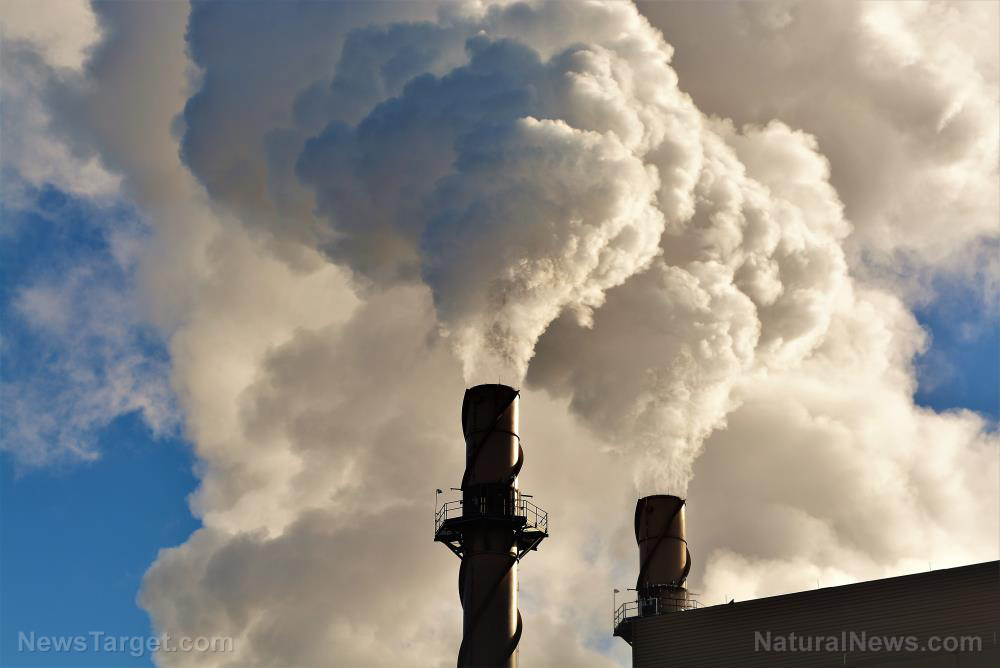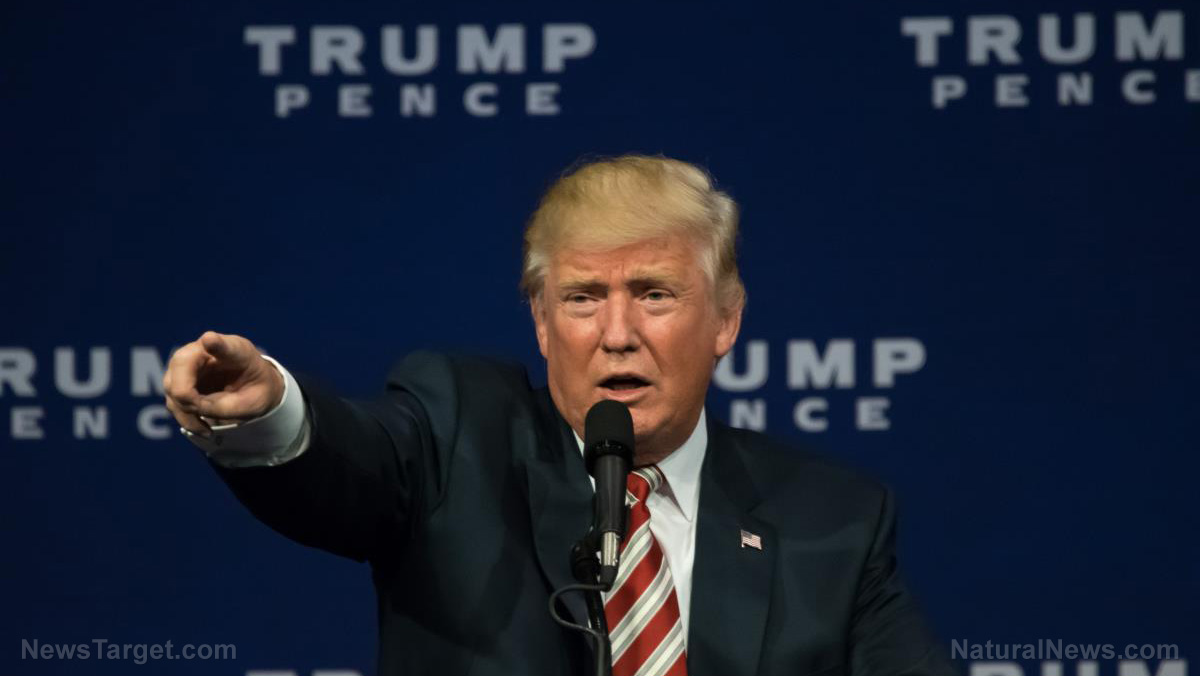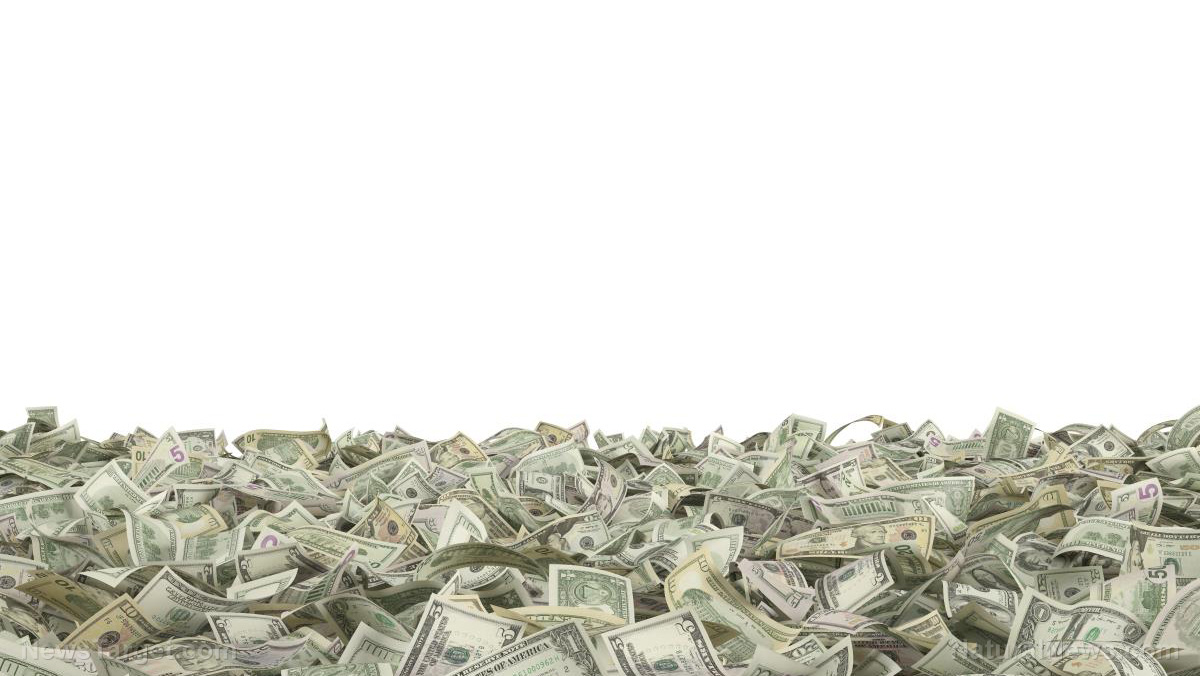The price of green idealism: How Europe’s climate agenda is tanking its economy
02/18/2025 / By Willow Tohi

- European automakers, including Volkswagen, Audi, BMW and Mercedes-Benz, are experiencing a significant decline in profits, attributed to the loss of cheap Russian energy and declining competitiveness in China, signaling a fundamental shift in the European economic landscape.
- The weakening euro and capital flight from Europe to the United States highlight broader economic vulnerabilities. U.S. stock markets are benefiting from Europe’s economic struggles, indicating a shift in global capital flows and a strain on the European economic model.
- The collapse of Denmark’s Better Energy A/S and financial troubles at Northvolt AB in Sweden underscore the risks and economic impracticalities of rapid green energy transitions, eroding investor confidence and affecting pension funds and long-term savings.
- New York’s $75 billion fine on fossil fuel companies and the EU’s stringent environmental regulations, including the Green Deal, are criticized for ideological overreach, leading to capital flight, business relocation and political resistance, such as farmer protests against the Farm to Fork strategy.
- The article concludes that Europe’s economic woes stem from an overzealous pursuit of green ideology without economic pragmatism. It calls for a more balanced approach that considers both environmental goals and economic realities to avoid further global economic instability.
Europe’s tyrannical approach to forcing the use of green energy has made them the architect of their own destruction. Science is never settled, but climate cultists have managed to brainwash the populace that they must suffer to save the planet. From excessive regulatory burden to astronomical energy prices based on ideology alone, the economy is crashing on several fronts.
Automotive collapse: A harbinger of wider economic woes
European automakers are facing a crisis of unprecedented proportions. According to Chris MacIntosh, the collapse of the European automotive industry is a direct result of the continent’s misguided climate policies and the loss of its traditional energy advantages.
Consider the staggering figures: Volkswagen’s profits have plummeted by 64%, Audi’s by 91%, BMW’s by 84% and Mercedes-Benz’s by 54%. These numbers are not just a reflection of a cyclical downturn; they signal a fundamental shift in the European economic landscape.
The business model of German carmakers was built on the foundation of cheap Russian energy and robust sales in China. The invasion of Ukraine and subsequent sanctions against Russia have crippled the first pillar, while China’s growing domestic automotive industry has undermined the second. As a result, European automakers are now struggling to remain competitive in a global market that is rapidly changing.
The impact is not limited to the automotive sector. The euro has weakened significantly, indicating a broader capital flight from Europe. Capital is seeking safer havens, and the United States is a primary beneficiary of this trend. U.S. stock markets are outperforming, partly due to Europe’s economic struggles. This shift in capital flows is a clear sign that the European economic model is under severe strain.
Renewable energy debacle: Denmark’s solar failure
The collapse of Denmark’s Better Energy A/S, a once-heralded solar park developer, is a stark reminder of the risks associated with the green energy transition. The company’s downfall has sent shockwaves through Denmark’s financial system, with significant losses for investors and pension funds. Sydbank A/S, Denmark’s third-largest listed lender, has announced impairment charges totaling 450 million kroner ($63 million) due to Better Energy’s collapse. ATP, Denmark’s largest pension fund, which held a 15% stake in Better Energy, will also suffer substantial losses.
This episode is not an isolated incident. Northvolt AB, a Swedish battery maker, has also faced financial difficulties, further eroding confidence in the green energy sector. These failures highlight the economic impracticality of rushing into renewable energy without a rigorous assessment of financial viability and long-term sustainability.
As MacIntosh points out, the renewable energy industry has been propped up by virtue signaling and ideological commitments rather than sound business practices. The consequences are dire for both investors and the broader economy. Pensioners, in particular, are bearing the brunt of these failures, as their hard-earned savings are being eroded by the misguided policies of those in charge.
Ideological overreach: New York’s folly and European paralysis
New York’s recent decision to impose a $75 billion fine on fossil fuel companies over the next 25 years is emblematic of the broader ideological overreach that is undermining economic stability. Governor Kathy Hochul’s signing of this bill reflects a growing trend of using punitive measures to enforce climate agendas, despite the economic costs. The predictable outcome is a flight of capital from New York, as businesses and individuals seek more favorable environments.
The European Union, too, is grappling with the consequences of its stringent environmental regulations. Qatar’s threat to cut off natural gas shipments to the EU if member states enforce the corporate due diligence directive is a clear illustration of the global pushback against overregulation. This directive, which mandates that companies adopt and enforce climate change mitigation plans, is seen by many as an existential threat to business operations.
The EU’s Green Deal, while ambitious, is struggling to gain traction. Farmer protests across Europe, fueled by anger over environmental regulations and subsidy cuts, have successfully stalled the implementation of key environmental policies. The Farm to Fork strategy, a cornerstone of the Green Deal, aimed to reduce pesticide use and promote sustainable agriculture. However, it has been watered down and, in some cases, abandoned due to political pressure.
This paralysis highlights a fundamental flaw in the EU’s approach to environmental policy. By failing to balance economic realities with ideological goals, the EU is undermining its own economic stability and global competitiveness. The result is a lose-lose scenario where both environmental and economic objectives are compromised.
Conclusion
The economic hardships facing Europe are not the result of random market fluctuations but are deeply rooted in the continent’s overzealous pursuit of green ideology. The collapse of the automotive industry, the failure of renewable energy projects, and the political backlash against environmental regulations are all symptoms of a larger problem: the EU’s reluctance to face the economic realities of its green agenda.
As capital continues to flee Europe, the United States stands to benefit, but the global economy as a whole will suffer. Europe’s economic struggles serve as a cautionary tale for other nations considering similar policies. The path to a sustainable future must be paved with practical, economically sound policies, not ideological fantasies. The time for a more balanced and realistic approach to environmental policy is now.
Sources include:
Submit a correction >>
Tagged Under:
affordable fuel, climate cultists, Collapse, economic riot, fuel supply, green tyranny, left cult, new energy report, penions, power, power grid, risk
This article may contain statements that reflect the opinion of the author
RECENT NEWS & ARTICLES
COPYRIGHT © 2018 MONEYSUPPLY.NEWS
All content posted on this site is protected under Free Speech. MoneySupply.news is not responsible for content written by contributing authors. The information on this site is provided for educational and entertainment purposes only. It is not intended as a substitute for professional advice of any kind. MoneySupply.news assumes no responsibility for the use or misuse of this material. All trademarks, registered trademarks and service marks mentioned on this site are the property of their respective owners.




















